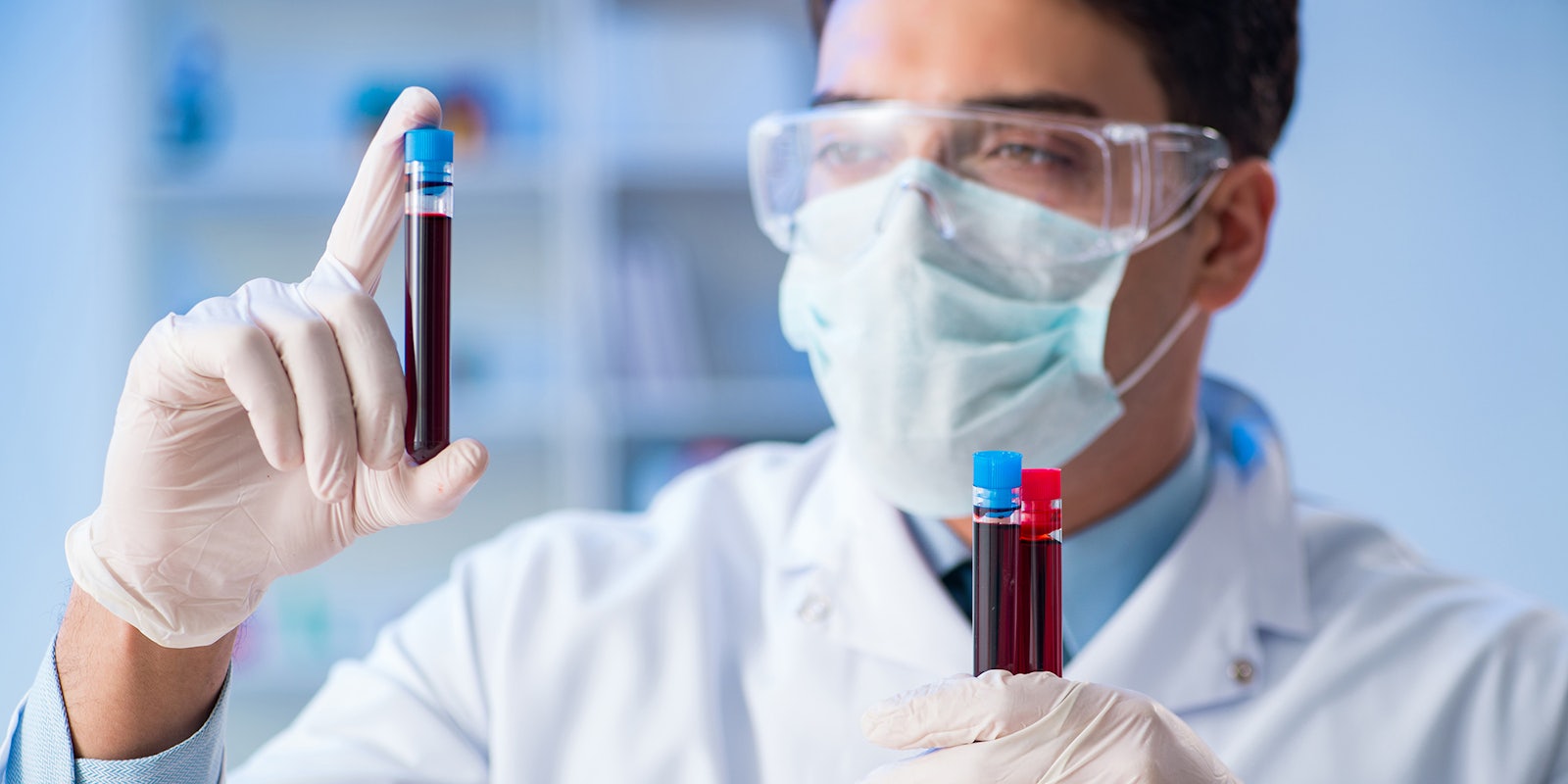Bryan Johnson, a millionaire tech investor whose recent push to reverse his aging had made a slew of headlines, announced on X today that his “super blood” had reduced his dad’s rate of aging to that of a 46-year-old.
“My super blood reduced my Dad’s age by 25 years,” read the title of Johnson’s post.
“The older we get, the faster we age. After receiving 1 L of my plasma, my father is now aging at the rate of a 46 year old,” Johnson explained, which is also his current age. “Previously, he was aging at the rate of a 71 year old. I am my dad’s blood boy.”
Johnson acknowledged some of the limitations of what the results of the experiment might mean.
“Only one biomarker is being evaluated here,” he wrote. In addition, he said, the effects have only been seen in the past six months. He also wrote that the reason for his father’s aging rate reduction might have been from him having removed 600 milliliters of his own plasma rather than the liter he received from his son.
Johnson made a small fortune in the early 2010s, founding mobile and web payment e-commerce services company Braintree, which acquired Venmo in 2012 before Paypal scooped it up a year later for $800 million.
In October 2021, Johnson announced Project Blueprint, which “aim is to measure all 70+ organs of my body and then maximally reverse the quantified biological age of each.”
According to a Bloomberg profile from the beginning of 2023, Johnson was on pace to spend $2 million that year to accomplish that goal. Johnson spends the money on a battery of blood tests and organ monitoring and sticks to a strict daily schedule that includes a restricted calorie diet, regular exercise, and precise sleep scheduling.
Johnson and his medical team claim that the results of this regimen have given him “the heart of a 37-year-old, the skin of a 28-year-old, and the lung capacity and fitness of an 18-year-old.”
In May 2023, Johnson released a YouTube video titled “Will My Son’s Blood Make Me Younger?” where he exchanged plasma with his son to test the experimental idea that blood transfusions from younger people can produce anti-aging effects.
That idea, which came out of research on parabiosis (basically what happens when conjoined organisms like twins develop together and share a circulatory system), is based on experiments from the early 2000s which indicated that giving blood to old mice taken from young mice reversed their aging clock, has circulated around Silicon Valley for years.
Tech investor and pro-Trump reactionary booster Peter Thiel reportedly showed interest in a startup called Ambrosia which offered $8,000 to young trial participants in a blood transfer study in 2017.
In July, Johnson reported that he was discontinuing the transfers with his son because they didn’t seem to be having any effect.
“Young plasma exchange may be beneficial for biologically older populations or certain conditions,” Johnson wrote then. “My father’s results still pending.”
On X, some users mocked the result of Johnson’s latest experiment by portraying it as a sign of man’s hubris against the inevitability of aging.
“OMG peak humanity and our inability to accept our biological limits hits another level,” wrote @RustyShakk. “As 8 bil+ humans continue to play pretend that we can continue to emit unsustainable amounts of carbon as elites stretch lifespans as far as they can. Our ego is destroying us.”
“I think i’ve seen this film before,” joked @xavierverse next to a screenshot from an episode of the HBO sitcom Silicon Valley where a wealthy tech investor gets blood transfusions from a younger man to stay young.



